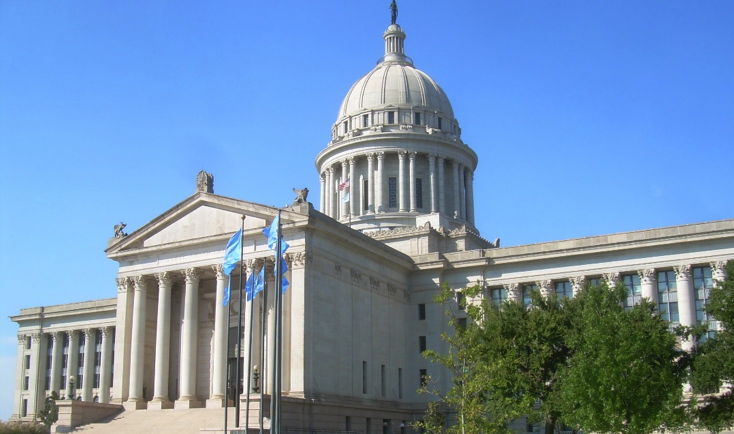On Monday, February 16th, the Oklahoma House Education Committee voted to ban the Advanced Placement (AP) United States History curriculum from state high schools. The curriculum, said Representative Dan Fischer, fails to teach “American exceptionalism,” instead focusing on “what is bad about America.” Such a ban is hypocritical on many levels. Much of the discussion regarding the legislative action centers on how Oklahoma is pushing non-factual ideology onto the public school curriculum, censoring key historical moments of American history because they do not fit the state’s version of “American exceptionalism.” However, the most hypocritical injustice stems from the fact that a state controlled legislative board is deciding the educational and ideological faith of students by not allowing them the choice of using a private organization
The College Board — the group that writes the AP curriculum — is a private organization that has proven successful in building a well-rounded and supported educational curriculum. Thus far, only ACT Incorporated (the company that runs the ACT standardized test) has managed to challenge the College Board ’s educational dominance, and only when it comes to standardized testing for college entrance. When it comes to providing educational tools and advanced-level curriculum, no other company has rivaled the predominance or success of the College Board. Simply put, the College Board offers a superior product in comparison to many other high school curriculum models. Republican legislatures, however, the very same ones who are pushing for a curriculum that betters asserts the benefits of free markets, are also banning private competition. It seems that the “American Exceptionalism” to which Oklahoma’s state legislature refers is the notion that when the state wants what it wants, it will unjustly bar others from challenging its authority.
What makes the AP US History curriculum such a successful product? What has allowed it to dominate a field in which there are theoretically no barriers to entry? And lastly, what makes it so intimidating that government officials want it banned from public schools? These are the questions that need to be answered.
With the AP exam alone, the College Board has allowed students of all backgrounds to receive college credit in their specific field of study. This essentially means that the company has ventured into the realm of higher level education, as its name might imply. This practice allows students of the highest caliber to succeed in their earlier stages of life, without having to pay the cost of a college course. Such a model provides value for the buck. The only other exam that provides such a product — the International Baccalaureate — is based not in the United States but Switzerland.
Furthermore, the greatest attribute of the AP history curriculum is that it was written not to indoctrinate students, as proponents of Oklahoma’s bill might claim, but rather as a structured framework elucidating key American historical concepts and themes. It was designed by veteran university professors and high school teachers alike, all with diverse opinions, all driven by the goal of establishing excellence in teaching. This approach allows for each individual AP US History teacher to flexibly decide what concepts should be taught regarding certain periods of American history, as opposed to being forced to teach a preset list of names and dates. This enables teacher to educate their students as they deem fit, while not losing sight of the holistic nature of US history. The exam itself is also built to ask more open-ended questions, and tests the ability of students to think critically, chronologically, contextually, and historically. It is not an exam designed to ask ideological questions based on partisan politics. The free response questions themselves are framed so that students are able to “support, modify, or challenge” assertions about concepts.
Additionally, what is very unique about the AP curriculum is that it is never stagnant. Recently, many teachers criticized the course as “a breathless race through American history, preventing teachers and students from examining topics of local interest in depth, and sacrificing opportunities for students to engage in writing and research.” As a result, the AP US curriculum was changed to give teachers even more flexibility, a measure that will be introduced as early as the May 2015 exam. Even with a product as seemingly “immutable” as the past, the College Board — as any successful company does — reinvents itself to suit the needs of its many customers.
The Oklahoma State Legislature wants to show students that government is a force that should only aid “conservative” values. It is scared Oklahoma’s students will learn about the uglier side of American history. It is worried school children will not be enamored by free market economics, and thus will not teach them any “unorthodox” alternatives. Instead, they will do what is easy by forcefully taking the AP US exam off the market. Unfortunately for them, far-right partisan education won’t sell very well if sold fairly on the market. The AP curriculum has proven that when it comes to education, centrist, non-partisan ideals sell inelastically. But I’ll save that last bit for the AP Microeconomics teachers to discuss.
